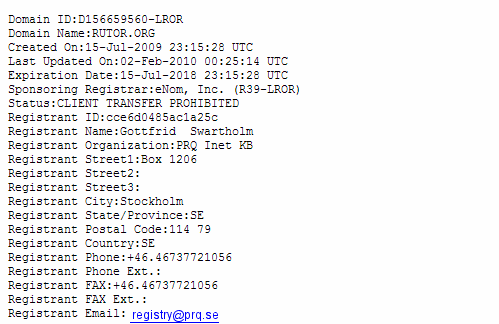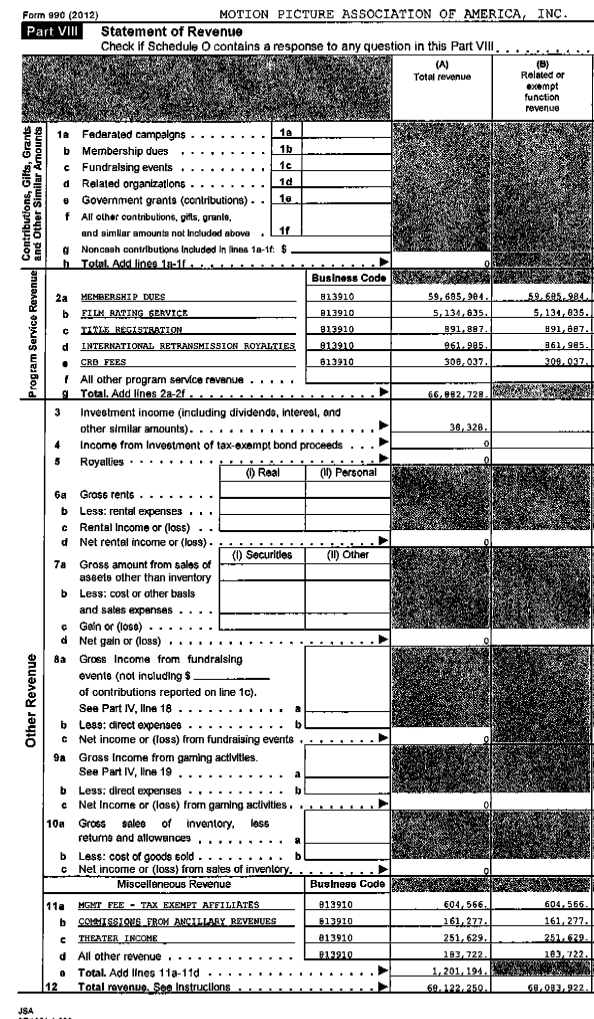Landmark Beyonce File-Sharing Prosecution Fails to Intimidate
mercredi 27 novembre 2013 à 09:11 Difficulties associated with gathering evidence against BitTorrent users have led authorities in Sweden to concentrate on file-sharing cases where large-scale infringement can be more easily shown. That has been achieved by going after users of systems such as DirectConnect, where proving the distribution of thousands of tracks is a much easier prospect.
Difficulties associated with gathering evidence against BitTorrent users have led authorities in Sweden to concentrate on file-sharing cases where large-scale infringement can be more easily shown. That has been achieved by going after users of systems such as DirectConnect, where proving the distribution of thousands of tracks is a much easier prospect.
However, while going after individuals sharing an album or two on BitTorrent usually amounts to an endless and expensive task, music labels are very happy to make exceptions. One of the industry’s pet hates are album pre-releases, and for those they are prepared to commit significant resources.
One such case concluded yesterday dates back to early June 2011 when a copy of Beyonce’s album ’4′ appeared online more than two weeks ahead of its official launch. An investigation carried out by the IFPI and anti-piracy company DtecNet (now MarkMonitor) led them to an IP address registered to a woman in Gothenburg. It was later established, however, that she was not the only one with access to her Internet account.
Also using her wireless connection was a neighbor, a then 47-year-old man. IFPI and Sony Music Entertainment said he uploaded the album to the Internet during June 8 2011, 16 days before the album’s June 24 launch.
Revelations that the man worked in the industry as a DJ and music producer added interest to the case, however it later became clear that he was not the source of the original leak. Torrent site records show the album was uploaded at least the day before but that didn’t matter to prosecutor Henrik Rasmusson, who stated that a pre-release is still a pre-release, no matter who released it first.
In interviews with the police the man protested his innocence, stating that he only believed he had been downloading the album for personal use, something he believed was permissible in Sweden.
“I had no idea when the Beyoncé album would be released, these days it’s almost impossible to know when the release takes place,” he explained. “If I downloaded the album illegally from a site such as The Pirate Bay, I would not have had a clue that it was a pre-release of the record or not.”
Of course, since BitTorrent is a two-way protocol he necessarily became an uploader too, something which exposed him as a pre-releaser of the album, despite his protests.
Earlier this month the man went to court for a two-day trial, with the now 48-year-old standing accused of breaches of copyright law. Hanging in the background was a huge $233,000 damages claim from Sony Entertainment, who said that the leak had not only damaged its marketing strategy and sales revenues, but had also hurt its relationship with Beyonce whose reputation had been damaged.
After much drama and deliberation, yesterday the sentence was handed down. The man was found guilty of copyright infringement but the verdict was hardly the scary affair the IFPI and Sony had hoped for.
In the event the court rejected imprisonment and handed down punishment based on the ‘day-fine’ system, which ranks the severity of the offense (in this case 80) and then multiplying that by the defendant’s daily income minus certain expenses.
Grand total – $1,200.
“They tried to make an example of me to intimidate both Swedish and foreign citizens,” said the 30 year veteran of the music industry. “Given that Swedish taxpayers have had to pay for this it smells a little bad.”
De-escalating matters further, it’s also believed that Sony has withdrawn its claim for damages. If true, that suggests that the music industry’s switch to chasing down BitTorrent users has proven just as time-consuming, costly and ineffective as observers believed it would.
Source: TorrentFreak, for the latest info on copyright, file-sharing and VPN services.
 Notorious movie and TV show streaming site Kino.to has long since closed and its operators
Notorious movie and TV show streaming site Kino.to has long since closed and its operators  It’s been a rough few months for Pirate Bay co-founder Gottfrid Svartholm. After being sentenced in Sweden on hacking related charges, he will be
It’s been a rough few months for Pirate Bay co-founder Gottfrid Svartholm. After being sentenced in Sweden on hacking related charges, he will be 
 Protecting the interests of Hollywood, the MPAA has been heavily involved in numerous anti-piracy efforts around the world in recent years.
Protecting the interests of Hollywood, the MPAA has been heavily involved in numerous anti-piracy efforts around the world in recent years. 

